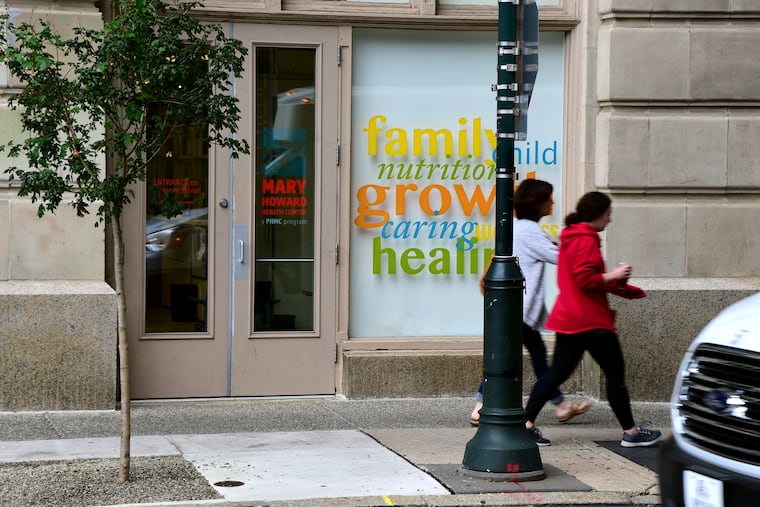In a rare move, workers at 6 low-income health centers in Philly vote to unionize
The Public Health Management Corp. professional staff at the federally qualified health centers began discussing their concerns at a meeting in February.

Physicians, nurses, social workers, and other health-care staff at six health centers serving low-income patients around Philadelphia have voted to unionize with SEIU Local 668, an uncommon move in a time of slow union growth.
A majority of the roughly 70 health-center workers, employed by Public Health Management Corp. (PHMC), voted in favor of the union last week after a months-long organizing campaign, though the union said the employer is attempting to remove physicians from the bargaining unit because it considers them management. PHMC declined to confirm this.
Union membership and elections to create locals have declined over the years, as laws protecting workers against retaliation lack teeth, anti-union groups are funded by corporate backers, and the president and the Supreme Court change rules to weaken unions. In 2018, just 6 percent of U.S. private-sector workers were unionized — an all-time low. And there were just over 1,000 union elections with the National Labor Relations Board, the lowest number in decades.
Still, there’s been a resurgence of labor activity, with workers, union and non-union alike, organizing high-profile strikes and other campaigns to win rights. And there seems to be a growing sense, at least among certain white-collar workers such as digital media professionals, that unions can win better working conditions.
The PHMC professional staff at the federally qualified health centers, which serve refugees, people who are on Medicaid or Medicare, and people experiencing homelessness, began discussing their concerns at a meeting in February.
“Everyone had a story that felt traumatizing,” said Katie Huynh, a physician assistant. “It was evident we needed to do something.”
>> READ MORE: From 2014: A Q&A with Richard Cohen, CEO of PHMC
Medical staff shared that they felt pressured to churn through patients rather than take the time needed to provide appropriate care. They said they didn’t feel as if there were measures in place to ensure their safety on the job. And they said they were frustrated that they didn’t have any say in how the health centers were run, and that there was no clinical expert on the PHMC management team. This month, Robert Heininger was hired as medical director, a change they believe was made because of their organizing.
Huynh, who’s been with PHMC for 15 years but is resigning because of her discontent with the organization’s management, said the workers tried to suggest changes to the managers but their input was ignored. That’s when they decided to form a union and reached out to Local 668 on the recommendation of other health-care workers. (Local 668 generally represents Pennsylvania state workers, but other branches of SEIU — 1199 SEIU United Healthcare Workers East in New York, for instance — represent workers at federally qualified health centers.)
>> READ MORE: From 2016: Why more nurses are unionizing in Philadelphia
Earlier this summer, PHMC hired consultants, described by unions as “union busters,” to speak to the workers about the downsides of joining a union, Huynh said. PHMC said it “provided staff with information and answers to questions regarding union representation.”
In a statement, a PHMC spokesperson said the nonprofit is “working to determine next steps regarding the bargaining unit in order to contribute to a productive path forward.”
“We will continue to focus on working in partnership with staff to ensure we’re delivering quality care in an environment that is supportive of all team members," the statement read. “In addition, our senior clinical and operational leadership team are committed to maintaining a working environment that supports the delivery of quality care to the communities who need us most.”
Medical assistants, receptionists, and other non-professional staff at the health centers are also in talks to unionize, Huynh said.
>> READ MORE: From 2016: CEO pay at region’s nonproft service providers
Local 668′s new members come at a time when unions are more focused on politics and protecting existing members’ rights than attracting new workers, which is both labor- and cost-intensive. The main union in the Philadelphia area that has successfully organized new workplaces is the Pennsylvania Association of Staff Nurses and Allied Professionals (PASNAP), which organized several hospitals and added about 3,000 nurses and techs to membership in the last few years. SEIU 32BJ organized 1,500 low-wage airport workers in 2017.